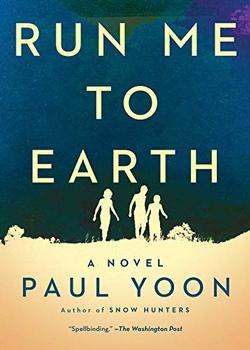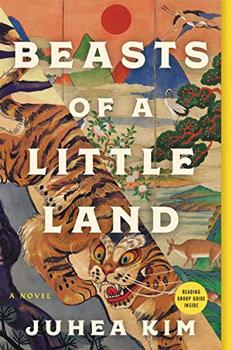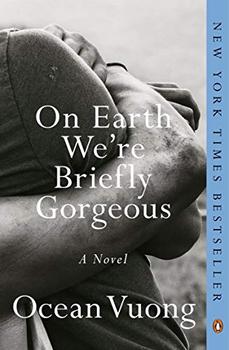Summary | Excerpt | Reading Guide | Reviews | Beyond the book | Read-Alikes | Genres & Themes | Author Bio

From award-winning author Paul Yoon comes a beautiful, aching novel about three kids orphaned in 1960s Laos - and how their destinies are entwined across decades, anointed by Hernan Diaz as "one of those rare novels that stays with us to become a standard with which we measure other books."
Alisak, Prany, and Noi—three orphans united by devastating loss—must do what is necessary to survive the perilous landscape of 1960s Laos. When they take shelter in a bombed out field hospital, they meet Vang, a doctor dedicated to helping the wounded at all costs. Soon the teens are serving as motorcycle couriers, delicately navigating their bikes across the fields filled with unexploded bombs, beneath the indiscriminate barrage from the sky.
In a world where the landscape and the roads have turned into an ocean of bombs, we follow their grueling days of rescuing civilians and searching for medical supplies, until Vang secures their evacuation on the last helicopters leaving the country. It's a move with irrevocable consequences—and sets them on disparate and treacherous paths across the world.
Spanning decades and magically weaving together storylines laced with beauty and cruelty, Paul Yoon crafts a gorgeous story that is a breathtaking historical feat and a fierce study of the powers of hope, perseverance, and grace.
Yoon's powerful storytelling unlocks deeply human themes: childhood interrupted by war, legacies of trauma that burden generations around the globe, cultural endurance, healing, loss, migration. This brilliant rendering of war's lasting impacts provides provocative topics for discussion and literary windows into an underreported segment of history...continued
Full Review
 (970 words)
(970 words)
(Reviewed by Karen Lewis).
 Author Paul Yoon's novel Run Me to Earth describes Laos as a beautiful landscape marked forever with unexploded ordnance (UXO) left in the wake of war from 1964 to 1973. Concealed explosives impact every character in the novel. The legacy of landmines and other unexploded munitions endures in the 21st century, not just in Laos but worldwide. Victims injured or killed by these weapons are often children at play or civilians and farmers living in rural areas that have not been cleared. It's estimated that 30% of the 250,000 cluster bombs dropped in Laos haven't yet exploded, and it's been almost 50 years since war ended there.
Author Paul Yoon's novel Run Me to Earth describes Laos as a beautiful landscape marked forever with unexploded ordnance (UXO) left in the wake of war from 1964 to 1973. Concealed explosives impact every character in the novel. The legacy of landmines and other unexploded munitions endures in the 21st century, not just in Laos but worldwide. Victims injured or killed by these weapons are often children at play or civilians and farmers living in rural areas that have not been cleared. It's estimated that 30% of the 250,000 cluster bombs dropped in Laos haven't yet exploded, and it's been almost 50 years since war ended there.
UXO affects more than 50 countries including Laos, Cambodia, Vietnam, El Salvador, Colombia, Myanmar, Bosnia, ...

If you liked Run Me to Earth, try these:

by Juhea Kim
Published 2022
An epic story of love, war, and redemption set against the backdrop of the Korean independence movement, following the intertwined fates of a young girl sold to a courtesan school and the penniless son of a hunter.

On Earth We're Briefly Gorgeous
by Ocean Vuong
Published 2021
Poet Ocean Vuong's debut novel is a shattering portrait of a family, a first love, and the redemptive power of storytelling.